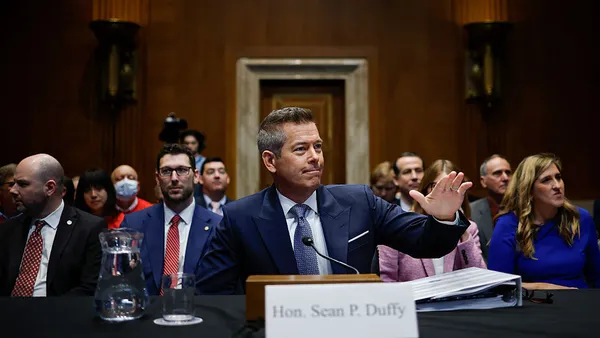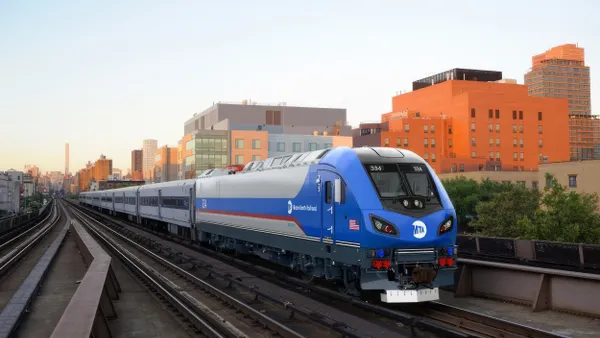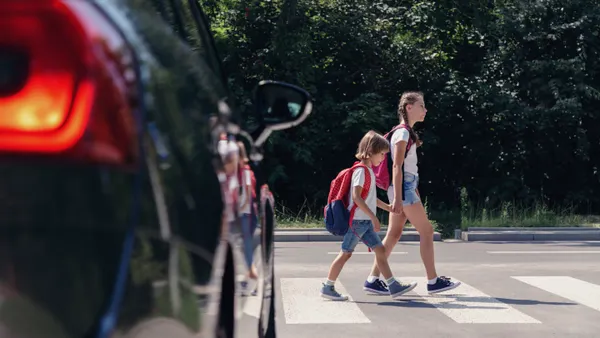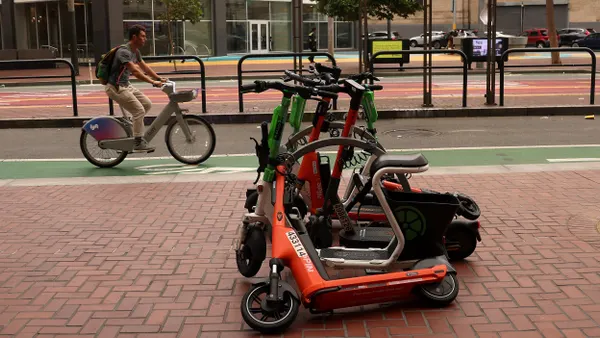Dive Brief:
- Uber is part of a new coalition, Communities Against Rider Surveillance (CARS), that is protesting Mobility Data Specifications (MDS) imposed by governments. The coalition comes amid a dispute between Uber and the City of Los Angeles over data-sharing requirements.
- The coalition says it will raise awareness of MDS — "a dangerous technology" — around the country and ask cities to adopt privacy principles "that put rider safety first." Efforts will include media outreach and direct interaction with local leaders.
- The CARS coalition also includes the Business Travel Coalition; Latinx-focused group Mi Familia Vota; the healthcare privacy organization Patient Privacy Rights; LA-based youth group Sylvia Nunn Angel’s and CDTech, which seeks to empower low-income communities in Los Angeles through tech.
Dive Insight:
The Los Angeles Department of Transportation (LADOT) first launched its MDS policy in fall 2018, requiring mobility companies to report certain data, like the start and top location of trips and, within 24 hours, the full route that passengers traveled. The data is designed to help the city plan for and react to rapid changes brought on by micromobility.
"There is no way we can run the city without valid information about what’s happening on our streets," said LADOT General Manager Seleta Reynolds at a California Senate hearing Tuesday, according to Streetsblog California.
While most micromobility companies complied to the MDS policy, Uber resisted, saying that the city is overstepping its bounds and is seeking to control the mobility market. LADOT then suspended Uber’s permit to rent out dockless Jump bikes and scooters, a decision that was upheld this month.
Uber has said it will continue to appeal the decision and fight MDS. The CARS coalition, which does not include any other mobility companies, will offer a public face for that protest.
"This is a disinformation campaign orchestrated by private companies who want to profit from cities, with no accountability," LADOT said in a statement. "We will stay focused on reducing congestion, improving air quality, protecting public safety and increasing access to our public streets and sidewalks — issues Uber has made worse nationwide."
This debate is not exclusive to Uber and LADOT. More than 50 other cities use MDS, while more than a dozen cities and private companies formed the Open Mobility Foundation (OMF) last year to govern these specifications and help guide future policies. (OMF’s board includes mobility companies Bird and Spin.)
While backers say MDS can help get a handle on micromobility and target infrastructure investments to where it is most needed, critics say it gives governments too much information. Studies have shown that location data, even anonymized, can be used to identify individuals.
In a statement, Business Travel Coalition Chairman Kevin Mitchell said "these ill-vetted programs" like MDS could enable "harmful use of sensitive personal and highly confidential commercial information." CARS plans to work in any city using MDS, including Washington, DC; Austin, TX; Chicago; Dallas; Miami; Nashville, TN; Portland, OR; Providence, RI; Santa Monica, CA; Tampa, FL and Seattle.









